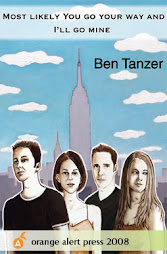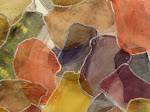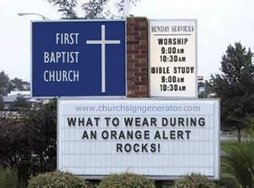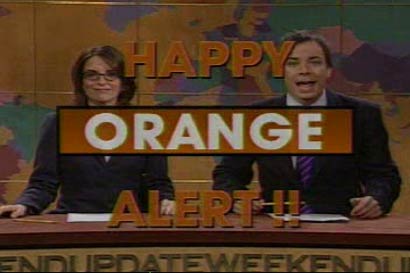
Benoit Pioulard
Thomas Meluch is fascinated by many different things, Polaroid pictures, nature, but most importantly he is fascinated by sound. From an earlier age he has been recording the sounds around him and the sounds that he has been able to create himself. His first appearance on a label was in 2004, at the age of 20, on a hometown label called Moodgadget. This also marked the first official appearance of the name Benoit Pioulard. After the release of his first ep Enge, Meluch signed with Chicago's Kranky Records. Releasing two albums and two eps in the next three years, he has continued to experiment with the way pop music sounds.
Thomas Meluch is fascinated by many different things, Polaroid pictures, nature, but most importantly he is fascinated by sound. From an earlier age he has been recording the sounds around him and the sounds that he has been able to create himself. His first appearance on a label was in 2004, at the age of 20, on a hometown label called Moodgadget. This also marked the first official appearance of the name Benoit Pioulard. After the release of his first ep Enge, Meluch signed with Chicago's Kranky Records. Releasing two albums and two eps in the next three years, he has continued to experiment with the way pop music sounds.
What makes the music of Benoit Pioulard so interesting are the various layers of field recordings and altered sounds, but what keeps your head moving are the solid pop melodies that lay just below the surface. There is a mystery and a distance in the sound that draws the listen in deeper. He makes you want to dig deeper and investigate the source of this complexity. So, I went straight to the source and asked Thomas a few questions.
Orange Alert (OA): Your latest release, Lee, was recorded just a few months after the passing of Lee Hazelwood. How did you choose “Sundown, Sundown” and did you consider finding someone to sing Nancy Sinatra's part?
Benoit Pioulard (BP): I’d had the notion in my mind for a while to cover a Lee Hazlewood song, and very shortly after he passed I put on the Nancy & Lee record; “Sundown, Sundown” asserted itself into my consciousness for the next several days and I found myself humming its melodies while the vocals rang through my head. To me the lyrics work on two levels – he’s either lamenting a nicknamed lost love or finding comfort in the beauty of things outside the interpersonal, both of which I have done. I didn’t want to replicate the amazing, epic arrangement of the original, however… I thought it best to be a little more interpretive while attempting to convey the same kind of ‘eyes to the horizon’ feel of the song. It did cross my mind to perhaps find a female voice for Nancy’s part, but I figured Trish Keenan would have said no.
OA: Lee was released on black and white vinyl. Do you feel your sound lends itself more to vinyl then say mp3 or cd?
BP: Certainly I have a fondness – even a preference – for analog, so it’s a great thrill to hear my little homemade things coming off of a record. Also I think a certain amount of demand for a vinyl version of the Précis album is what led to Kranky’s decision to release it (and Temper) that way, so it’s great to know people have that same affinity.
OA: Speaking of your sound, it walks a line between lo-fi and jangle pop. I have always wondered what your recording process is like?
BP: Some parts – namely guitar and vocals, usually bass as well – are done in a fairly regimented fashion after lots of rehearsal. But upon beginning to record something I really only have that skeleton in place, so the rest of any given song will arise during the few days that I’m making it, rolling around ideas in my head and so on. The instrumental pieces vary widely in their level of planning; some are assembled from a cache of field recordings and noises I find appealing, while others (“Sweep Generator”, for example) are mostly constructed in my head beforehand. I do my best not to fall into patterns that might yield boredom…this is a selfish project after all.
OA: Both Temper, your latest full-length album and Precis were released on Kranky Records, one of the most under rated label in Chicago. What has your experience been like with Kranky?
BP: From what I understand about the workings of most other labels, I couldn’t be happier to be on Kranky – Joel is the definition of no-nonsense and will never mince words, nor does he make anything even resembling a false promise. There are loads of good reasons the label’s been around for 15 years while so many others come and go. And what still stuns me is that I’ve actually managed to make a few dollars from the albums, which I thought at my scale was unlikely at best.
OA: Your framed Polaroid shot box sets are a great idea. Where did the idea come from and do you feel that fans are more likely to buy this box then the individual albums?
BP: I’ve been utterly fascinated by Polaroid since the first time I saw a shot slide from the gate of my grandpa’s old warhorse camera. Oddly I didn’t get one of my own until I was a teenager, but by the time I found what you might call a ‘voice’ in my recordings, it seemed natural to include some of my shots alongside the music since I’m such a visual person… At a certain point I had a few people asking whether any of the shots were for sale and realized there could actually be a niche market for them. I love the process of selling and sending things directly to people – to me the personal connection is invaluable, hence the handmade album versions etc. With the inconceivable amount of music floating around in the world, I take it as a huge compliment when someone gives any attention at all to mine.
OA: What next for Benoit Pioulard?
BP: I’m looking at a possible springtime tour with Windy & Carl, though there are no details to speak of yet. Around that time I’ve also got a new 7” with a couple of longish songs coming about on Blue Flea Recordings. I’m pretty happy about that one, actually.
"Ragged Tint" from Temper
Bonus Questions:
OA: If you could sit down to coffee with anyone (alive or dead) who would it be?
BP: Werner Herzog.
OA: What was the last great book you have read?
BP: If by ‘great’ you mean ‘classic’, then probably Waiting for the Barbarians by Coetzee. If you just mean ‘awesome’, then it’s Psychogeography by Will Self.
Orange Alert (OA): Your latest release, Lee, was recorded just a few months after the passing of Lee Hazelwood. How did you choose “Sundown, Sundown” and did you consider finding someone to sing Nancy Sinatra's part?
Benoit Pioulard (BP): I’d had the notion in my mind for a while to cover a Lee Hazlewood song, and very shortly after he passed I put on the Nancy & Lee record; “Sundown, Sundown” asserted itself into my consciousness for the next several days and I found myself humming its melodies while the vocals rang through my head. To me the lyrics work on two levels – he’s either lamenting a nicknamed lost love or finding comfort in the beauty of things outside the interpersonal, both of which I have done. I didn’t want to replicate the amazing, epic arrangement of the original, however… I thought it best to be a little more interpretive while attempting to convey the same kind of ‘eyes to the horizon’ feel of the song. It did cross my mind to perhaps find a female voice for Nancy’s part, but I figured Trish Keenan would have said no.
OA: Lee was released on black and white vinyl. Do you feel your sound lends itself more to vinyl then say mp3 or cd?
BP: Certainly I have a fondness – even a preference – for analog, so it’s a great thrill to hear my little homemade things coming off of a record. Also I think a certain amount of demand for a vinyl version of the Précis album is what led to Kranky’s decision to release it (and Temper) that way, so it’s great to know people have that same affinity.
OA: Speaking of your sound, it walks a line between lo-fi and jangle pop. I have always wondered what your recording process is like?
BP: Some parts – namely guitar and vocals, usually bass as well – are done in a fairly regimented fashion after lots of rehearsal. But upon beginning to record something I really only have that skeleton in place, so the rest of any given song will arise during the few days that I’m making it, rolling around ideas in my head and so on. The instrumental pieces vary widely in their level of planning; some are assembled from a cache of field recordings and noises I find appealing, while others (“Sweep Generator”, for example) are mostly constructed in my head beforehand. I do my best not to fall into patterns that might yield boredom…this is a selfish project after all.
OA: Both Temper, your latest full-length album and Precis were released on Kranky Records, one of the most under rated label in Chicago. What has your experience been like with Kranky?
BP: From what I understand about the workings of most other labels, I couldn’t be happier to be on Kranky – Joel is the definition of no-nonsense and will never mince words, nor does he make anything even resembling a false promise. There are loads of good reasons the label’s been around for 15 years while so many others come and go. And what still stuns me is that I’ve actually managed to make a few dollars from the albums, which I thought at my scale was unlikely at best.
OA: Your framed Polaroid shot box sets are a great idea. Where did the idea come from and do you feel that fans are more likely to buy this box then the individual albums?
BP: I’ve been utterly fascinated by Polaroid since the first time I saw a shot slide from the gate of my grandpa’s old warhorse camera. Oddly I didn’t get one of my own until I was a teenager, but by the time I found what you might call a ‘voice’ in my recordings, it seemed natural to include some of my shots alongside the music since I’m such a visual person… At a certain point I had a few people asking whether any of the shots were for sale and realized there could actually be a niche market for them. I love the process of selling and sending things directly to people – to me the personal connection is invaluable, hence the handmade album versions etc. With the inconceivable amount of music floating around in the world, I take it as a huge compliment when someone gives any attention at all to mine.
OA: What next for Benoit Pioulard?
BP: I’m looking at a possible springtime tour with Windy & Carl, though there are no details to speak of yet. Around that time I’ve also got a new 7” with a couple of longish songs coming about on Blue Flea Recordings. I’m pretty happy about that one, actually.
"Ragged Tint" from Temper
Bonus Questions:
OA: If you could sit down to coffee with anyone (alive or dead) who would it be?
BP: Werner Herzog.
OA: What was the last great book you have read?
BP: If by ‘great’ you mean ‘classic’, then probably Waiting for the Barbarians by Coetzee. If you just mean ‘awesome’, then it’s Psychogeography by Will Self.
Listen to: Sundown, Sundown (mp3) from Lee, Brown Bess (mp3) from Temper, and Triggering Back (mp3) from Precis
For more information on Benoit Pioulard please visit his website.
+by+Nick+Volkert).jpg)


































